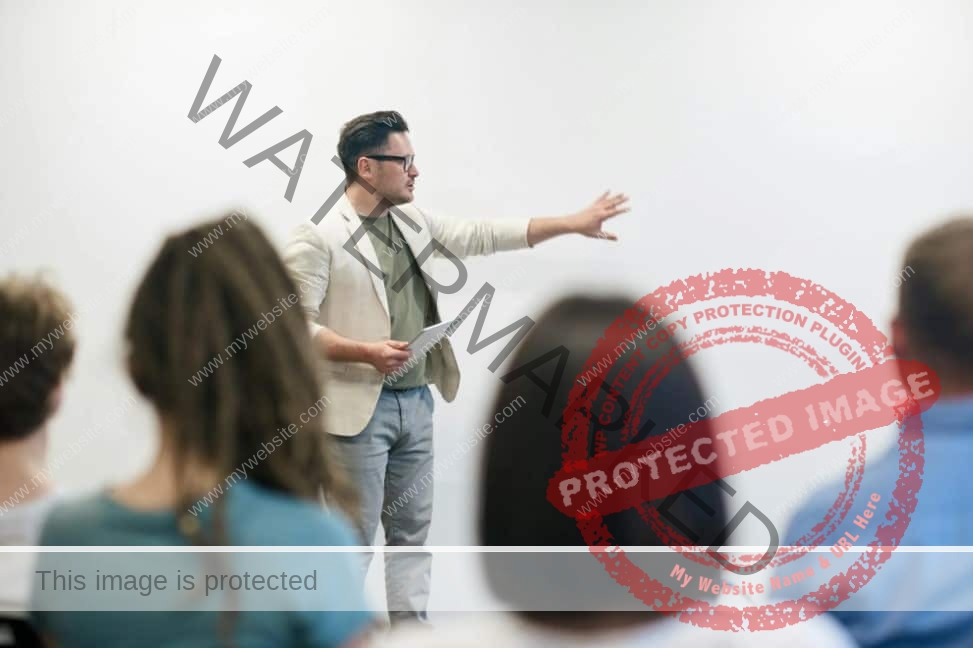Located in the green surroundings of Haverford, Pennsylvania, Haverford College is known for its great academics and focus on community. It started way back in 1833 and has always been about making students curious, ethical, and part of a welcoming community. With its beautiful campus, excellent teachers, and lively students, Haverford offers a special education experience. In this post, we’ll explore Haverford College in detail, covering its interesting history. As well as the classes it offers, what campus life is like, and how it helps students grow personally and intellectually. Let’s take a closer look at what makes this college special.
History of Haverford College
Founded in 1833 by members of the Religious Society of Friends (Quakers). Haverford College has a rich history rooted in the traditions of progressive education, intellectual inquiry, and social responsibility. From its humble beginnings as a Quaker boarding school to its evolution into a leading liberal arts college. Haverford’s journey is a testament to the enduring values and visionary leadership that have shaped its identity over the centuries.
See also: Brandeis University
Origins and Founding
Haverford College traces its origins to a group of prominent Quaker families in Philadelphia. They sought to establish a school that would provide a rigorous academic education grounded in Quaker principles and values. Led by members of the influential Biddle, Brown, and Sharpless families, the founders envisioned a college that would prepare students. However, not only for professional success but also for lives of ethical integrity, service to others, and commitment to social justice.
In 1833, their vision became a reality with the establishment of Haverford College on a 200-acre tract of land in Haverford, Pennsylvania. The college’s original mission was to provide a “guarded education” that would nurture the intellectual, moral, and spiritual development of its students. Thus, within a supportive and inclusive community guided by Quaker ideals of simplicity, equality, and integrity.
Early Years and Growth
During its early years, Haverford College faced numerous challenges, including financial struggles, limited resources, and the social and political upheavals of the mid-19th century. Despite these obstacles, the college persevered, thanks in large part to the dedication and resilience of its faculty, staff, and students.
In 1856, Haverford awarded its first bachelor’s degrees to a graduating class of four students, marking a significant milestone in its history. Over the ensuing decades, the college experienced steady growth and expansion, with new buildings, programs, and initiatives added to accommodate the increasing number of students and the evolving needs of society.
Notable Figures and Influences
Throughout its history, Haverford College has been shaped by a diverse array of individuals who have left an indelible mark on the institution and its community. From visionary presidents and pioneering faculty members to esteemed alumni and benefactors, these figures have played a pivotal role in advancing Haverford’s mission and values.
One such figure is Edward Parrish, who served as Haverford’s first president from 1833 to 1863. A staunch advocate of Quaker principles and progressive education, Parrish laid the foundation for the college’s academic rigor, moral leadership, and commitment to social reform. Under his leadership, Haverford established itself as a leading institution of higher learning in the United States, attracting students and faculty from across the country and beyond.
Another influential figure in Haverford’s history is Rufus Jones, a renowned Quaker philosopher, theologian, and educator who served as president of the college from 1898 to 1915. Jones’s vision of Haverford as a “community of scholars” dedicated to the pursuit of truth, wisdom, and social justice helped to shape the college’s ethos and identity for generations to come. His emphasis on experiential learning, interdisciplinary inquiry, and global engagement laid the groundwork for Haverford’s modern curriculum and educational philosophy.
See also: Brandeis University
Evolution and Modernization
In the 20th century, Haverford College underwent significant changes and transformations in response to shifting demographics, societal trends, and educational philosophies. The college expanded its academic offerings, diversified its student body, and embraced new approaches to teaching and learning while remaining true to its Quaker heritage and values.
In the aftermath of World War II, Haverford experienced a period of unprecedented growth and expansion, fueled by the GI Bill and the post-war baby boom. The college welcomed a new generation of students eager to pursue higher education and make their mark on the world, contributing to a vibrant campus community characterized by intellectual curiosity, social activism, and cultural diversity.
In the ensuing decades, Haverford continued to innovate and evolve, adapting to the changing needs and aspirations of its students and society at large. The college introduced new academic programs, interdisciplinary majors, and experiential learning opportunities designed to prepare students for success in an increasingly complex and interconnected world.
Today, Haverford College remains committed to its founding principles of academic excellence, ethical leadership, and social responsibility. Guided by its Quaker heritage and progressive values, the college continues to educate and inspire future generations of scholars, leaders, and global citizens who are equipped to address the challenges and opportunities of the 21st century with courage, compassion, and conviction.
See also: Applying to Tottenham Hotspur Academy
Academic Excellence at Haverford College
Haverford College offers a rigorous and interdisciplinary liberal arts curriculum that encourages students to explore diverse fields of study and engage in intellectual inquiry across traditional boundaries. With a student-to-faculty ratio of 8:1 and an average class size of 17, Haverford provides an intimate learning environment where students receive personalized attention and mentorship from world-class faculty members.
The college offers more than 30 majors and numerous interdisciplinary minors, allowing students to tailor their academic journey to suit their interests and career aspirations. From the humanities and social sciences to the natural sciences and engineering, Haverford’s curriculum is designed to cultivate critical thinking skills, creativity, and a passion for lifelong learning.
One of the hallmarks of Haverford’s academic program is its emphasis on undergraduate research and experiential learning. Students have the opportunity to collaborate closely with faculty members on research projects, participate in internships and externships, and engage in immersive learning experiences both on and off campus. Whether conducting fieldwork in a remote corner of the globe or presenting their findings at academic conferences, Haverford students are encouraged to explore, innovate, and make meaningful contributions to their fields of study.
See also: Public Universities in USA
Campus Life and Community at Haverford College
Beyond the classroom, Haverford offers a vibrant and inclusive campus community where students can pursue their interests, form lifelong friendships, and make a positive impact on the world around them. With over 145 student-run organizations, ranging from cultural clubs and performing arts groups to community service initiatives and athletic teams, there’s something for everyone at Haverford.
The college’s residential life program plays a central role in fostering a sense of belonging and connection among students. Haverford’s unique system of student-led “Houses” provides a supportive and close-knit living environment where students from diverse backgrounds can come together to share meals, host events, and build lasting relationships. Whether lounging on the quad, attending a campus lecture, or volunteering in the local community, Haverford students are actively engaged in campus life and contribute to the vibrant tapestry of the college community.
In addition to its rich array of extracurricular activities, Haverford offers a wealth of resources and support services to help students thrive academically, socially, and emotionally. From academic advising and career counseling to wellness programs and student-run support groups, the college is committed to providing comprehensive support to ensure that every student has the opportunity to reach their full potential.
See also: Applying to West Ham United FC Academy
Admission into Haverford College
Embarking on the journey to join Haverford College involves navigating through its admissions process. Applicants can submit their materials through the Common Application or the Coalition Application, ensuring they provide high school transcripts, standardized test scores (SAT or ACT), letters of recommendation, and a personal essay. While Haverford considers standardized test scores, they offer applicants the choice to go test-optional.
There are two application cycles: early decision and regular decision. Early decision applications are typically due in November, with decisions released in December, while regular decision applications are due in January, and decisions are released in March. Meeting these deadlines is crucial.
Haverford employs a holistic review process, evaluating applicants not solely on academic achievements but also on personal qualities, extracurricular involvement, and potential contributions to the campus community. Interviews, though not mandatory, are strongly recommended to provide applicants with an opportunity to showcase their interests and personality.
Financial aid is a significant aspect of Haverford’s admissions process. The college pledges to meet 100% of demonstrated financial need for admitted students, utilizing a combination of grants, scholarships, work-study opportunities, and loans. Students who require financial assistance must fill out both the CSS Profile and the Free Application for Federal Student Aid (FAFSA).
Once applications are submitted, the admissions committee meticulously reviews each one, aiming to identify candidates who exhibit intellectual curiosity, commitment to learning, and a desire to make a positive impact. Admissions decisions are communicated on specific release dates, ensuring applicants are informed of their status, whether they applied early decision or regular decision.
In essence, Haverford’s admissions process seeks to identify individuals who will thrive academically, intellectually, and personally within its community. Applicants are encouraged to present themselves authentically and emphasize their unique qualities, experiences, and aspirations.
See also: Everton FC Academy
Global Engagement and Social Responsibility
As a global citizen, Haverford College is dedicated to promoting cross-cultural understanding, social justice, and environmental sustainability. Through its robust study abroad program, students have the opportunity to immerse themselves in diverse cultures, gain new perspectives, and develop a deeper appreciation for the interconnectedness of the world.
Haverford’s commitment to social responsibility is reflected in its many community service initiatives and partnerships with local organizations. Whether tutoring underserved youth, participating in environmental conservation projects, or advocating for social change, Haverford students are actively engaged in making a positive difference in the world.
Conclusion
In conclusion, Haverford College stands as a beacon of academic excellence, ethical leadership, and inclusive community values. With its rigorous liberal arts curriculum, vibrant campus life, and commitment to social responsibility, Haverford offers students a transformative educational experience that prepares them to thrive in an ever-changing world.
Whether exploring the frontiers of knowledge in the classroom, forging lifelong friendships on the quad, or making a difference in the global community, Haverford students are empowered to pursue their passions, embrace new challenges, and become the ethical leaders and engaged citizens of tomorrow. As Haverford continues to evolve and adapt to the demands of the 21st century, its commitment to academic excellence, integrity, and community will remain unwavering, ensuring that future generations of students will continue to be inspired by its rich legacy of learning and discovery.

